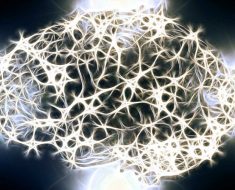- Singer Demi Lovato said she inadvertantly fell into exercise addiction while trying to recover from an eating disorder.
- Lovato had been exercising three times a day, after every meal, she told model Ashley Graham in a interview for Graham's "Pretty Big Deal" podcast.
- Exercise addictions and orthorexia, an obsession with "clean" eating, are often linked to other disordered eating behaviors, and can be dangerous and even life-threatening if not treated by therapists and medical professionals.
- Visit Insider's homepage for more stories.
From the outside, Demi Lovato seems to be living a dream life, debuting an emotional new single at this year's Grammy, and achieving her lifelong goal of performing the national anthem at the Superbowl.
But internally, the star has undergone consistent struggles with body image and self-acceptance, she told model Ashley Graham in a podcast that aired on Tuesday. Lovato suffered a drug overdose in July 2018 that was preceded by her struggles with an insidious form of eating disorder, in the form of an obessesion with healthy eating and exercise.
"I thought the past few years was recovery from an eating disorder when it actually was just completely falling into it," Lovato told Graham on the podcast.
Exercise addiction, an unhealthy compulsion to work out, often accompanies eating disorders
Lovato said that during the peak of her disorder, she was exercising as much as three times a day. This included working out after every meal, to the point where it was disrupting other activities in her life.
"There were times I lived at the gym," Lovato told Graham. "I'd eat a meal, go work out. And that's not happiness to me, that's not freedom."
This compulsion to work out is known as exercise addiction. People with exercise addiction may work out to the point of injury, at the expense of their health, social relationships, and even finances.
Although it can occur with or without eating disorders, recent research found that people with eating disorders are 4 times more likely to develop exercise addiction that the general population.
Orthorexia, an obsession with 'clean eating,' is an eating disorder disguised as wellness
Lovato also said that after previously struggling with "extreme diets," she later realized she had more suble signs of an eating disorder.
"I realized my symptoms weren't as obvious but it was definitely an eating issue," she told Graham.
One example of an insidious eating disorder is orthorexia, defined as an compulsion to eat only "clean" or "healthy" foods. On the surface, the obsession can seem innocuous — who doesn't want to eat healthy?
But taken to an extreme, that can lead toward diet that severely restricts certain types of foods labeled as "bad,"including many that are in fact harmless, such as carbs, dairy, or fruit. It can also cause feelings of guilt, shame or anxiety attached to eating certain foods.
Orthorexia can also occur alongside other types of disordered eating.
Lovato said that body acceptance has helped her recovery
Eating disorders can be dangerous or even life-threatening, and should be treated by professionals.
Lovato said her recovery has involved extensive work with experts, including therapists, dietitians and other medical professionals.
Part of coming to terms with her body image involves a practice of acceptance, Lovato said. Rather than saying she finds herself beautiful, sexy, and flawless, even if that isn't true, Lovato said she's worked on recognizing she isn't perfect, and that's ok.
"I see myself in the mirror and I say … 'Nope, you're healthy and I accept you.' And that's all I need to do," she said. "It's expressing gratitude in the health and reality in accepting yourself rather than trying to convince yourself of something you don't believe."
Lovato also said that it's been helpful for her to focus on engaging forms of exercise she genuinely enjoys, such as jiu- jitsu, a martial art involving intense strategy and technique.
"I feel sexiest when I'm doing jiu jitsu because I'm not thinking about my body. I feel sexy when i'm showing my strength, showing intelligence," she told Graham.
And, she added, it's been a long time since she even stepped on a scale.
"I don't know what I weigh and it's the most free i've felt in my whole life," Lovato said.
Read more:
People with eating disorders are 4 times more likely to develop a dangerous addiction to exercise, study finds
'Intuitive eating' is on the rise, and experts say it's because people are fed up with diet culture
Khloe Kardashian promoted Flat Tummy shakes again, and influencers are warning they promote risky dieting habits
If you or someone you know is struggling with an eating disorder, you can call NEDA’s Helpline (1-800-931-2237) on weekdays for support, resources, and information about treatment options. In crisis situations, NEDA offers 24/7 support — just text “NEDA” to 741-741.
Source: Read Full Article





